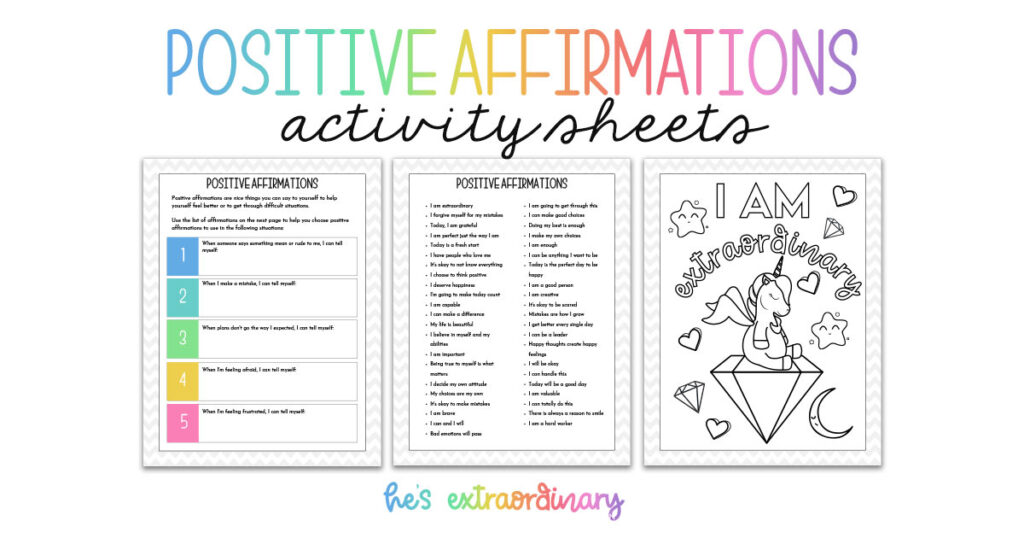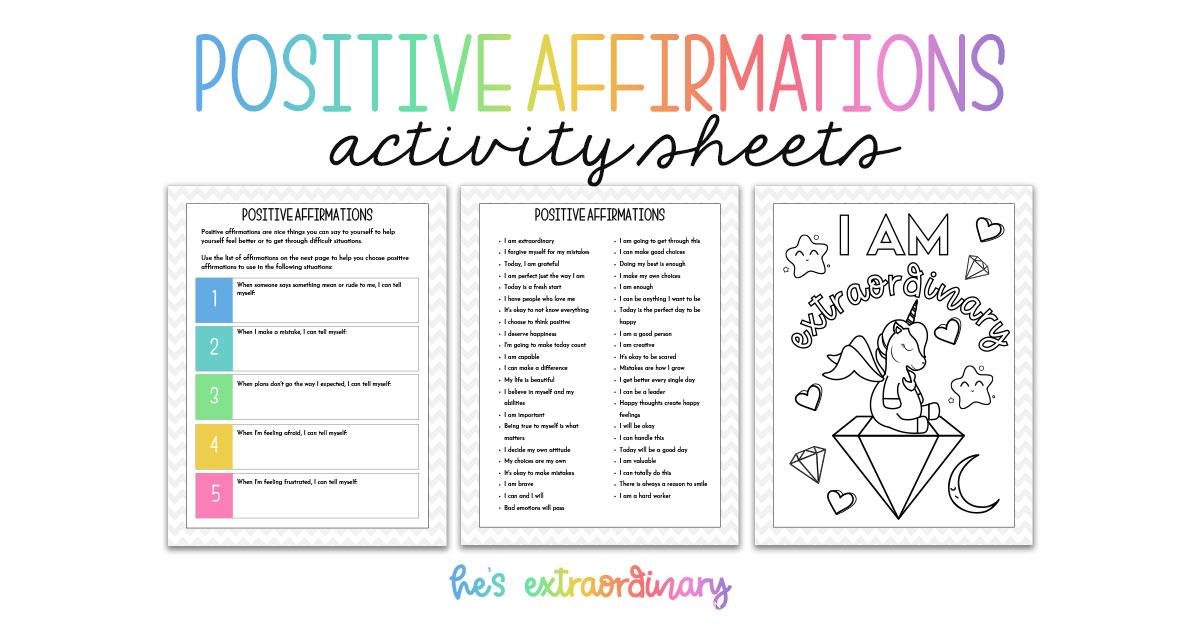
Unlock Your Potential: Positive Affirmations for Young Adults
Navigating the complexities of young adulthood can be challenging. From academic pressures and career anxieties to relationship dynamics and self-discovery, young adults face a unique set of hurdles. One powerful tool that can aid in this journey is the practice of using positive affirmations for young adults. These affirmations are not just empty words; they are potent statements that, when repeated consistently, can reprogram your subconscious mind, boost your self-esteem, and cultivate a more optimistic outlook on life. This article delves into the science-backed benefits of positive affirmations for young adults, providing practical examples and guidance on how to effectively incorporate them into your daily routine.
The Science Behind Positive Affirmations
The effectiveness of positive affirmations stems from the principles of neuroplasticity. Our brains are not static; they are constantly adapting and rewiring themselves based on our experiences, thoughts, and emotions. When we repeatedly expose ourselves to positive affirmations, we are essentially reinforcing positive neural pathways. Over time, these pathways become stronger, making it easier to access positive thoughts and beliefs. Studies have shown that regularly practicing positive affirmations can lead to increased activity in brain regions associated with self-related processing and reward, contributing to a greater sense of self-worth and well-being. [See also: The Power of Positive Thinking]
Benefits of Positive Affirmations for Young Adults
The benefits of incorporating positive affirmations for young adults are numerous and far-reaching:
- Improved Self-Esteem: Positive affirmations can directly combat negative self-talk and challenge limiting beliefs, fostering a stronger sense of self-worth.
- Reduced Stress and Anxiety: By focusing on positive outcomes and personal strengths, positive affirmations can help to mitigate feelings of stress and anxiety, promoting a calmer and more centered state of mind.
- Enhanced Resilience: Positive affirmations can build resilience by reminding you of your capabilities and inner strength, making you better equipped to cope with challenges and setbacks.
- Increased Motivation: By reinforcing your goals and aspirations, positive affirmations can provide a powerful source of motivation, helping you to stay focused and committed to your objectives.
- Improved Relationships: When you cultivate a positive self-image, you are more likely to attract and maintain healthy relationships. Positive affirmations can also help you to communicate more effectively and empathetically.
- Better Academic Performance: Confidence and a positive mindset, cultivated through positive affirmations, can lead to improved focus, reduced test anxiety, and ultimately, better academic results.
Crafting Effective Positive Affirmations
Creating effective positive affirmations requires careful consideration. Here are some key principles to keep in mind:
- Use Present Tense: Frame your affirmations as if they are already true. For example, instead of saying “I will be successful,” say “I am successful.”
- Be Specific: The more specific your affirmations, the more powerful they will be. Instead of saying “I am happy,” say “I am happy and grateful for the opportunities in my life.”
- Use Positive Language: Avoid using negative words like “not” or “don’t.” Focus on what you want to achieve, rather than what you want to avoid.
- Keep it Concise: Short, memorable affirmations are easier to repeat and internalize.
- Make it Personal: Your affirmations should resonate with your individual values, goals, and aspirations.
Examples of Positive Affirmations for Young Adults
Here are some examples of positive affirmations for young adults, categorized by common areas of concern:
Affirmations for Self-Esteem
- I am worthy of love and respect.
- I am confident in my abilities.
- I am proud of who I am.
- I accept myself unconditionally.
- I am capable of achieving my goals.
Affirmations for Academic Success
- I am intelligent and capable of learning.
- I am focused and motivated to study.
- I excel in my studies.
- I am confident in my ability to succeed in exams.
- I embrace challenges as opportunities for growth.
Affirmations for Career Development
- I am talented and skilled in my chosen field.
- I attract opportunities that align with my passions.
- I am confident in my ability to succeed in my career.
- I am valued for my contributions.
- I am open to new and exciting career possibilities.
Affirmations for Relationships
- I attract healthy and supportive relationships.
- I communicate effectively and empathetically.
- I am worthy of love and connection.
- I am a loving and supportive partner/friend.
- I nurture my relationships with care and respect.
Affirmations for Overcoming Challenges
- I am resilient and capable of overcoming challenges.
- I learn and grow from every experience.
- I am strong and resourceful.
- I trust in my ability to handle any situation.
- I am open to finding solutions to my problems.
Incorporating Positive Affirmations into Your Daily Routine
Consistency is key when it comes to the effectiveness of positive affirmations. Here are some practical ways to incorporate them into your daily routine:
- Morning Ritual: Start your day by reciting your affirmations aloud in front of a mirror. This sets a positive tone for the day ahead.
- Throughout the Day: Take short breaks throughout the day to repeat your affirmations silently or aloud. This can help to refocus your mind and reduce stress.
- Before Bed: End your day by reviewing your affirmations. This can help to promote relaxation and positive thoughts before sleep.
- Journaling: Write your affirmations in a journal along with reflections on how they are impacting your life.
- Visualization: Combine your affirmations with visualization techniques. Imagine yourself achieving your goals and experiencing the positive outcomes you are affirming.
- Use Technology: Set reminders on your phone or use affirmation apps to help you stay consistent with your practice.
Addressing Common Concerns About Positive Affirmations
Some people may be skeptical about the effectiveness of positive affirmations, viewing them as simplistic or unrealistic. It’s important to address these concerns:
- Affirmations are not a magic bullet: They are a tool that requires consistent effort and commitment.
- Affirmations should be realistic and believable: If you choose affirmations that are too far removed from your current reality, you may find it difficult to internalize them.
- Affirmations should be combined with action: While affirmations can help to shift your mindset, they are most effective when combined with concrete actions that support your goals.
The Importance of Self-Compassion
While positive affirmations are a valuable tool, it’s equally important to practice self-compassion. Acknowledge your imperfections and treat yourself with kindness and understanding. Self-compassion allows you to embrace your vulnerabilities and learn from your mistakes, fostering a more authentic and resilient sense of self.
Conclusion: Empowering Your Future with Positive Affirmations
Positive affirmations for young adults offer a powerful pathway to self-improvement and personal growth. By consciously choosing positive and empowering statements, young adults can reshape their beliefs, boost their self-esteem, and cultivate a more optimistic outlook on life. Embrace the power of positive affirmations and unlock your full potential. Remember that using positive affirmations is a journey, not a destination. Be patient with yourself, celebrate your progress, and continue to nurture your inner world with positivity and self-compassion. These positive affirmations for young adults can change your life. Consider exploring [See also: Mindfulness Techniques for Stress Reduction] to complement your affirmation practice.

